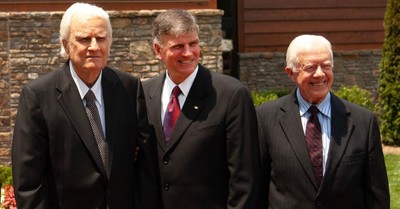Marriage, Homeschooling, and You
- Anita Mellott Home School Enrichment Magazine
- Published Oct 22, 2010

"What?" My husband looked at me across the restaurant table. The evening sun, streaming in through the glass-covered atrium, glinted off the sparkling silverware. A burst of rainbows spread over the white tablecloth as the sun's rays hit the glass tumblers.
"It's quiet. No one's interrupting us or wanting us for something. We can actually talk!" He grinned. As our eyes met over the menu, I felt a connection with him in a way that hadn't happened in a while.
After 15 years, Jim and I had managed to get away for a day—just the two of us. Even though we made sure we regularly spent time together during our work weeks, retreating from our hectic lives to Chateau Élan, a tranquil spot on the outskirts of Atlanta, was doing wonders for us.
The next day, we returned home to a cranky toddler, a frazzled grandmother, and a tired tween. I opened the refrigerator to discover that dark, sticky rivulets of a nondescript substance had oozed down the shelves and sides of the fridge, sticking the fruits and vegetables to the bottom drawers.
As I cleaned each shelf with a toddler clinging to my legs, my euphoria disappeared. By the time I reached the drawers, dislodging and wiping off every fruit and vegetable, I was longing for our getaway.
That night, as Jim and I sat on the sofa after everyone was in bed, he murmured, "Lord, help us find a way to make this our Chateau Élan."
Homeschooling is a busy season in life. If we're honest with ourselves, we know that the husband-wife relationship can sometimes take a backseat despite our best efforts and knowledge. Jim and I are realizing that we have to be intentional about our marriage. Intentionality is more than scheduling time together. It's finding meaningful ways to connect. It's working to keep God and each other at top priority.
Intentionality is at the heart of each of the following areas.
Time to Relate
Given our schedules—Jim's two-hour daily commute, homeschooling activities, church commitments, etc.—it's challenging to carve out time for each other. Commitment-free weekends and evenings offer us larger chunks of time together. During the week, we grab little windows of time—a phone call, a couple of uninterrupted minutes around the dinner table when our tween catches her breath from regaling us with a minute-by-minute account of her day, or a few minutes while cleaning the kitchen.
But intentional relationship-building is more than taking time to be with each other: it's taking time to relate in ways that are meaningful to the other. I need to connect emotionally with Jim—to chat with him, share my day, ask his advice, and hear about him and his day. On the other hand, exhausted after his day, he is content to sit on the sofa next to me and watch TV.
Every day on his bus ride home, we chat on the phone. When he enters the house, I feel connected with him, and he doesn't feel the pressure to try to meet my emotional needs immediately. Some days we talk for a while; other days it's a shorter conversation. Even though the time may not come in ways we'd like and the setting may not be perfect, because our focus is on relating to each other, those tiny windows of time go a long way in building our relationship.
Communication
"You really hurt my feelings," my husband commented one evening when the kids were in bed.
I looked at him in surprise. "I did?" As he refreshed my memory, I saw what had happened. It had been a mad scramble to get dinner on the table, feed our toddler, remind my tween about chores, and see what my mother needed. All the while, my mind was on a writing project. When Jim offered to help, my response was unkind, even though I didn't mean to be harsh.
"Pleasant words are as an honeycomb, sweet to the soul, and health to the bones" (Proverbs 16:24). It's hard to remember this truth while multitasking and feeling pressured to meet everyone's needs.
Communication isn't only about words or silence. It's about tone of voice and the body language that accompanies words. It's about our actions or lack of them. Communication is a two-way street. Often I inhibit that reciprocity because I'm too caught up in what I'm doing to take the time and effort to communicate better.
Intentional communication doesn't come easily, but being intentional about communicating love and respect goes a long way. First, though, we each have to discover what communicates love and respect to the other in order to act on it. Jim's learning not to expect much of me when I'm busy. In turn, I make an effort to stop what I'm doing to give him my attention so I can better communicate.
Jim knows that giving me a few hours off to browse in a bookstore does more for me than a bouquet of flowers. I know that complimenting him on the yard or letting him watch a football game with his friends without putting a guilt trip on him about "family time" communicates something special to him.
Prayer
There's no substitute for praying together. Nothing touches me more than my husband being vulnerable in the presence of Almighty God. Nothing is more powerful than him interceding for our family. And there's nothing that binds us together more powerfully than bowing before our Lord in worship, praise, and intercession. As we come before Him, the hurts, pettiness, and stresses that can cloud our relationship dissipate in the light of His grace.
Service Marriage is all about putting each other's needs ahead of our own, and I often fail miserably. Most days, I am so spent meeting everyone else's needs that when Jim comes home, I feel I have nothing left to give. He's an adult, he can fend for himself, I rationalize.
The last thing Jim wants to do after a 12- to 13-hour day is wash the dishes or put our baby to bed, but he does it out of love, to meet my needs. Mike Mason in The Mystery of Marriage writes, "However much we may wish to be left alone, it is not an option. It is the one thing that God and marriage refuse to allow us . . . [There is] no life apart from the sharing of ourselves with another" —even when we don't feel like it.
Evaluating Expectations
Expectations play a powerful role in relationships, especially in marriage. They influence the way Jim and I relate and respond to each other. The problem is that since they function subconsciously, often we don't even realize we have expectations of each other until disappointment sets in. And many times, my expectations are unrealistic.
"Search me, O God, and know my heart: try me, and know my thoughts" (Psalm 139: 23) is my frequent prayer. We are learning to be honest with each other about our expectations in an atmosphere that is accepting and noncritical. In his book As for Me and My House: Crafting Your Marriage to Last, Walt Wangerin Jr. writes, "Honesty in you likewise hides nothing of your whole self from your spouse." Prayerfully, we work toward finding a balance between our expectations and our realities.
God As the Foundation
Christ is to be the foundation of our lives, marriage and family. But that's not going to happen if Jim and I are not serious about our individual relationships with Him. The Christian life is not a stagnant one. It's one of growth, born out of a constant hunger and thirst for Him.
Faithfulness to Bible study, prayer, and worship in our personal lives permeates our marriage and family and draws us closer to Jesus. "Spiritual discipline is to the inner spirit what physical conditioning is to the body" (Gordon MacDonald, Rebuilding Your Broken World).
No marriage is immune to the pressures and challenges of life. The Christian family is under attack as never before. But intentionally focusing on the Lord, keeping Him as the cornerstone of our lives, makes all the difference.
When the storms come—and they will—when the winds blow—and they will—we have an anchor that remains steadfast no matter what.
Several months have passed since our Chateau Élan getaway. Though intentionality in our marriage spells hard work and commitment, Jim and I are discovering that our Chateau Élan can be right here, at home, even in the midst of our busy lives.
As one who daily needs and experiences the depth and power of God's grace, Anita Mellott writes from the heart about real-life issues. A homeschooling mom, she writes words of encouragement and hope at From the Mango Tree (http://amellott.wordpress.com/)
This article was originally published in the Jan/Feb '10 issue of Home School Enrichment Magazine. Now, get a FREE subscription to the HSE Digital Edition! Visit www.HSEmagazine.com/digital today to get immediate access to the latest edition!




















